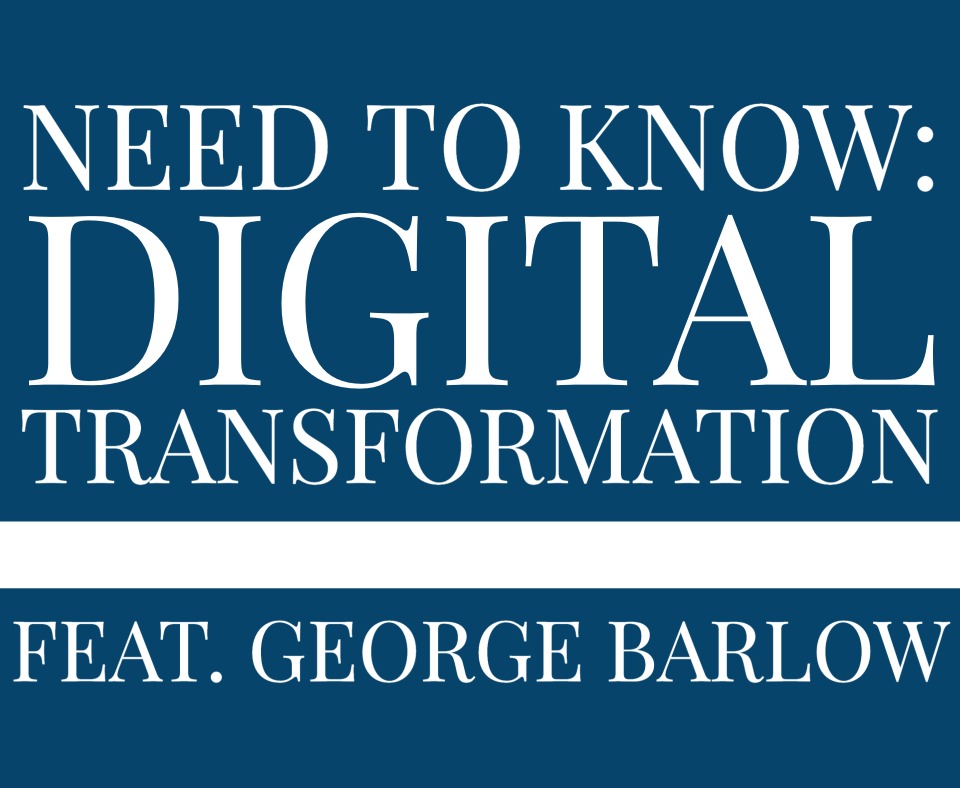Gregg Rock interviews George Barlow.
We are especially excited to let folks know that George is going to be presenting two of our newest courses that are part of the Digital Transformation Specialist series in our Summer Session 1 Training Event.
GR: So, George, one of the things that we’ve seen over the years is that folks got on board in the early days with BPM Adoption, and there’s still a lot of organizations that are just getting their arms around BPM, but I think BPM serves as a stepping stone to a lot of other technologies and new innovation that is coming down the pike. One thing that we’re trying to help our members understand better is the connection to these new technologies, particularly as it relates to Low Code/No Code and Process Automation. So, from your perspective, what do you think BPM practitioners need to know about Low Code/No Code?
GB: Well, first of all, the landscape of Low Code/No Code is huge, confusing, it’s changing all the time, companies are consolidating. And, basically, members need to know how to make sense of all this and kind of categorize the myriad of companies and tools that are out there. Just a general idea is far bigger than most people believe.
Model driven development and automation has been around for a couple of decades now within organizations. So, that’s pretty common. We’ve got Appian, and Pega, and Trisotech—companies like that, where we’ve had modeling for a long time and automation more recently. But those are Low Code solutions and, interestingly enough, they’ve started calling themselves Low Code solutions, after years of trying not to do that. And now we have our RPA companies like UiPath, who are getting into task automation in addition to RPA document automation. The process mining companies like slowness are getting into process and task automation, not just the discovery of processes, like they started their company.
Now, interestingly enough, ITs second largest area after data science is the programmers. But, there is a skills gap of programmers—there just aren’t enough to go around. And so, when you look at the fact that in the United States, the average programmer salary is over 100k a year and, even though these Low Code solutions certainly don’t get rid of programmers by any stretch, they do help make costs less significant than hiring all new programmers and new developers.
Really it turns out that 82% of the firm’s surveyed suggest that custom application development outside IT is important, so companies do recognize this. We’re seeing the advent of the citizen developer, if you will, and these Low Code/No Code tools are getting better literally by the week, so it’s a pretty exciting time. And any Institute Member should at least get a chance to see what they are, and what they think about them.
GR: Now I think that’s a great point, and especially the challenge with finding developers these days, I talked to our Members on a regular basis and that is a real pain point for them. Recently, you and I chatted about some of the big challenges for enterprises to adopt a Low Code/No Code – can you talk a little about that and what you might be seeing out there?
GB: Well, the first question is often about Low Code/No Code and Pro Code (which is what we call the programming staffs of today). One of the fundamental questions everybody needs to answer is should enterprises with IT staff’s get behind Low Code/No Code or not, and if so, to what degree. The only way to do that is to really understand better about what this Low Code/No Code world looks like in, in fact, whether IT can profit from it as well as the business sectors themselves.
Second, of all, we talked about it sort of from a different dimension a minute ago but the demand for IT applications has absolutely outstripped the available programming capabilities everywhere. So divisions, departments, and work teams have really been building their own apps for probably a decade or more, when you start to look at it, I mean most people don’t think about these 10,000 spreadsheets the organization has but those are really apps for those users out there. And that’s what they’ve been doing and they’ve bought their own solutions, some of the early Appian solutions, for example, were acquired by groups within large organizations who couldn’t get an FIT capability. Then, Gartner predicts by 2024 that 65% of the application projects are going to rely on Low Code/No Code development. But, there’s plenty of reasons to be wary of the citizen developer, and one of the things that we do is examine those reasons, in the Summer course that I’ll be teaching.
GR: George, can you share any organizations that are doing this successfully so far?
GB: Well, lots of them. There’s over 300 of these products currently in the marketplace in 10s if not hundreds of thousands of organizations currently using Low Code/No Code to some degree. So, there’s many hundreds of user success stories, and you can find him at the click of a button on the Internet. Every developer tool’s website will have five or so wonderful user customer stories, so if you’re interested in doing that those are a couple of clicks away in a browser. But again, interestingly enough, according to Gartner, by 2024 75% of organizations are going to be using at least four different Low Code development tools for building both IT development and citizen development initiatives, so pretty heavy.
Editor’s Note: This is a five-part article and video series.
Watch the entire Need to Know: Digital Transformation video series.
Read the other articles in the series here:
Article 2: What is the Current State of Process Automation?
Article 3: How Does AI and Machine Learning Fit Into Low Code/No Code and Process Automation Environments?
Article 4: What is the Triple Crown of Modeling? BPMN, DMN, & CMMN Explained.
Article 5: What Strikes You as Most Significant About the Migration to Cloud Computing?
Want to be featured in the next Need to Know series to share your expertise? Get in touch – we’d love to hear from you.

















